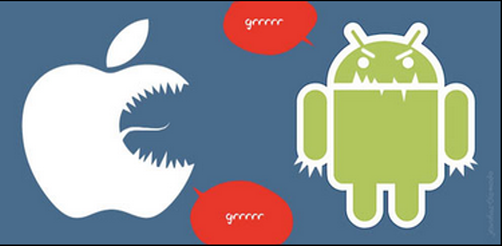

Smartphone and tablet activations based on Apple’s iOS and Google’s Android operating systems continued their ramp up in the enterprise sector, according to Good Technology’s third-quarter report.
Good, which makes software to help companies manage iPhones, iPads, Android handsets and tablets and other gadgets, said that the iPhone accounted for 61 percent of smartphone activations, compared to 39 percent for Android.
Still, Android’s 39 percent plot is a boost from Q2, when the platform accounted for 33 percent of all smartphone activations compared to iPhone’s 66 percent. John Herrema, senior vice president of Good Technology, said he believes it’s possible consumers were holding back purchases of new iPhones in anticipation of Apple’s new smartphone, which was revealed on 4 October as the iPhone 4S.
The iPhone 4S sold more than 4 million units in its first three days of sales, thanks to pent-up demand for a new iPhone, a speedier processor, 8 megapixel camera and the much-ballyhooed Siri virtual personal assistant application.
“Looking forward to Q4, 2011, we expect to see the iPhone 4S to be the catalyst for an Apple rally,” Herrema said.
The tablet activation comparison really isn’t a comparison. Thanks to 46 percent penetration in financial services, the iPad tallied more than 96 percent of total business tablet activations, compared to just 4 percent for Android.
While that number looks bleak for Android, Strategy Analytics said that Android tablet shipments (not sales) are on the upswing, so Good’s Q4 data could paint a prettier picture for slates based on the open source platform.
Interestingly, Android’s enterprise stake approximates its worldwide market share, which is more than 40 percent. The iPhone is believed to account for around 20 percent worldwide share, which makes the iPhone’s dominating presence in the enterprise surprising.
Apple has anecdotal evidence to put wood behind its enterprise adoption. Apple CFO Peter Oppenheimer said on the company’s Q4 earnings call on 20 October that 93 percent of the Fortune 500 deploying or testing the device. For example, Lowe’s is rolling out more than 40,000 iPhones to enable their store associates to do real-time inventory checks.
Moreover, United Continental Holdings is putting iPads in every cockpit, and all Nippon Airways in Japan is now using iPad in training programmes for flight attendants.
Elon Musk sells social media platform X to his AI start-up xAI in a move…
TikTok opens e-commerce shopping in Germany, France, Italy as US future remains uncertain over divest-or-ban…
Discover expert insights on overcoming digital transformation challenges. Learn how to manage change, balance innovation,…
Microsoft drops data centre projects amounting to 2 gigawatts of power consumption as investors question…
SMIC sees revenues rise 27 percent for 2024, but profits fall nearly 50 percent amidst…
Google reassures developers Android to remain open source as it brings development entirely in-house, reduces…